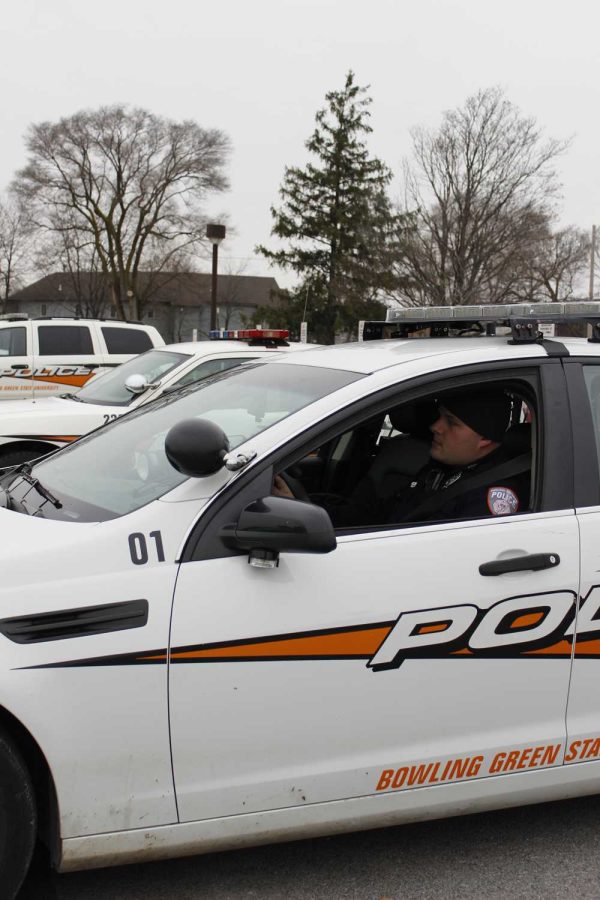A high-pitched buzzing comes from the speed radar, rising and falling with the speed of cars.
This is a normal experience for University police who work day shifts. For Officer Shelley Horine, shifts usually consist of patrolling the city and looking for people violating traffic laws.
While Horine admits that day shifts can be slow, she still likes them for their unpredictably.
“I’m not doing the same thing every day,” she said. “You don’t know what to expect.”
She often deals with things such as people being locked out of buildings, people in mental crises and fire alarms.
When she isn’t patrolling the streets, Horine is a field training officer for Derek Carlson, officer-in-training.
Horine said training has been one of the hardest aspects of her job because she has a big responsibility to make sure Carlson is doing everything right.
Carlson graduated from the University in 2012 with a degree in criminal justice. He then went to police academy at Owens Community College from January to July 2013.
Carlson said going to the University has helped him get to know the geography of the campus, but as an officer, he needs to know it well.
“Just going to class is different from responding to a possible crime in progress,” he said.
While training, officers go through different steps to learn about the community and what to do in certain situations.
University Police Chief Monica Moll said training police at the University is the same as any other department. One thing that does differ, however, is part of the training requires interpersonal skills. This training involves role playing in different scenarios, in which the trainees are evaluated on their response, said Moll and Horine.
An example of one of these scenarios could be dealing with a distraught person in an office building, said Viva McCarver, employee relations manager.
“The most important thing is good interpersonal skills,” Moll said. “You really have to know how to talk to people. I think most people think that defensive tactics and physical fitness is the most important part.”
Moll said because the University police deal with a college campus, their job can be different than city police’s.
While the city police deal with a wide variety of people, the University police deal primarily with young adults who are “in their prime” for causing trouble, Moll said.
Carlson said he chose the University police because he knew he’d be able to see things from the perspective of a student. He said currently his biggest challenge is coming to terms with the fact that not everything can be solved and the outcome isn’t always what he’d like it to be.
“I am always one for trying to help people and trying to make their day better,” he said.








